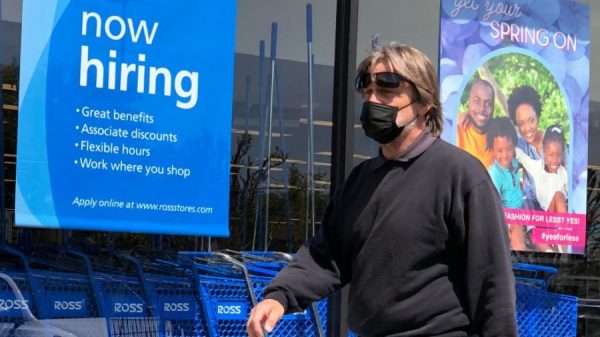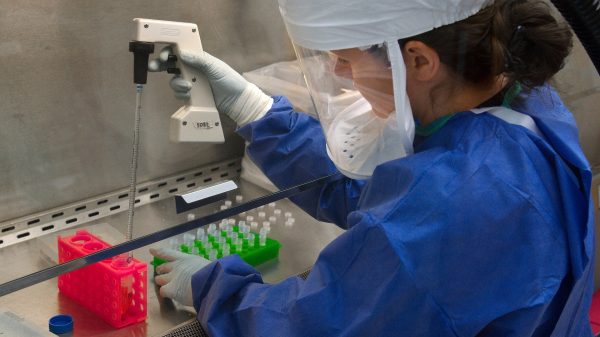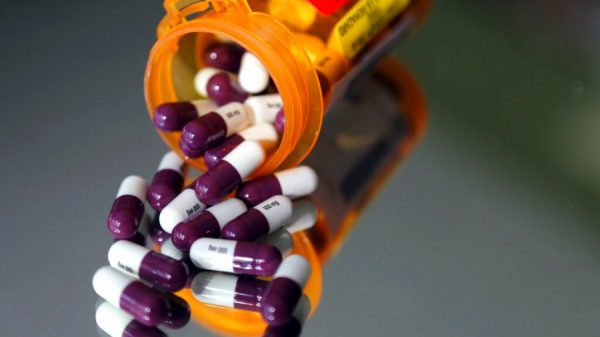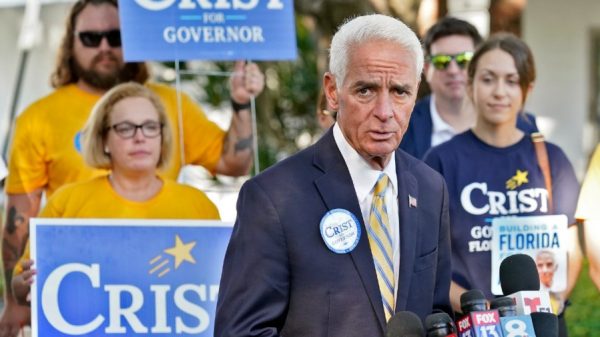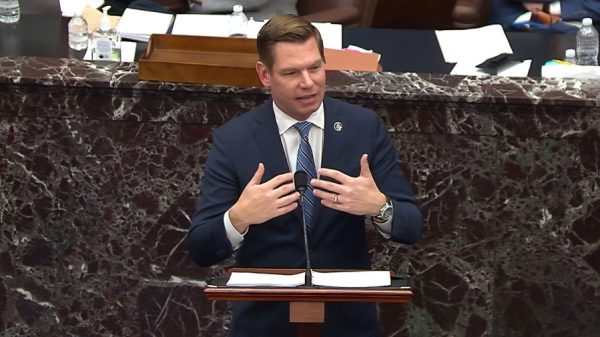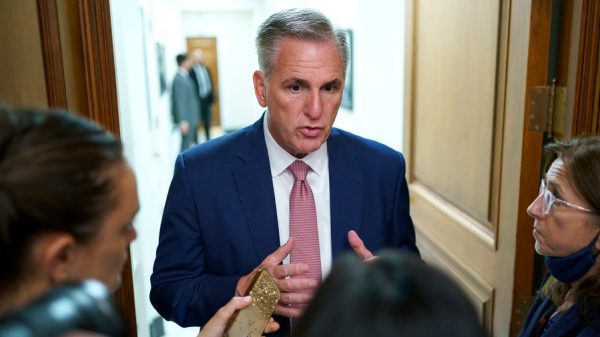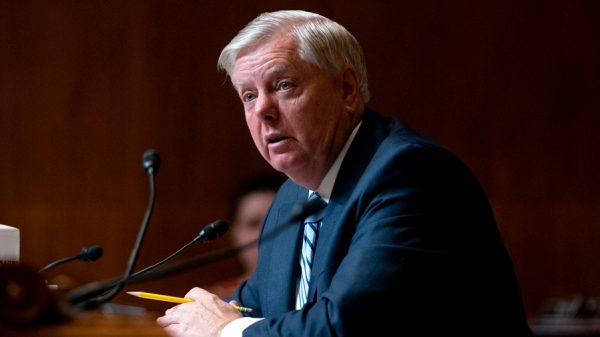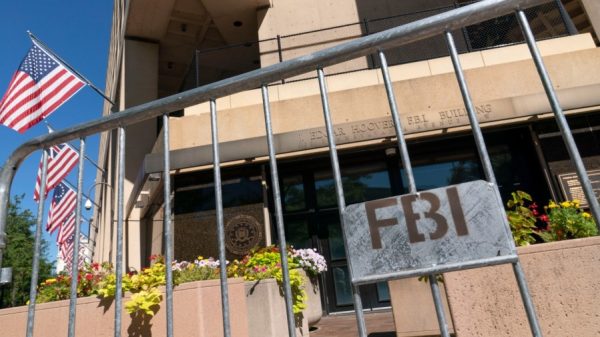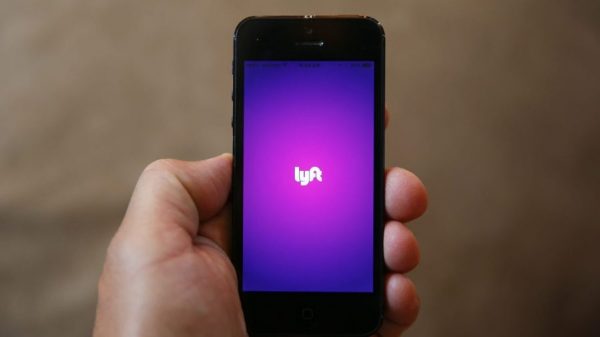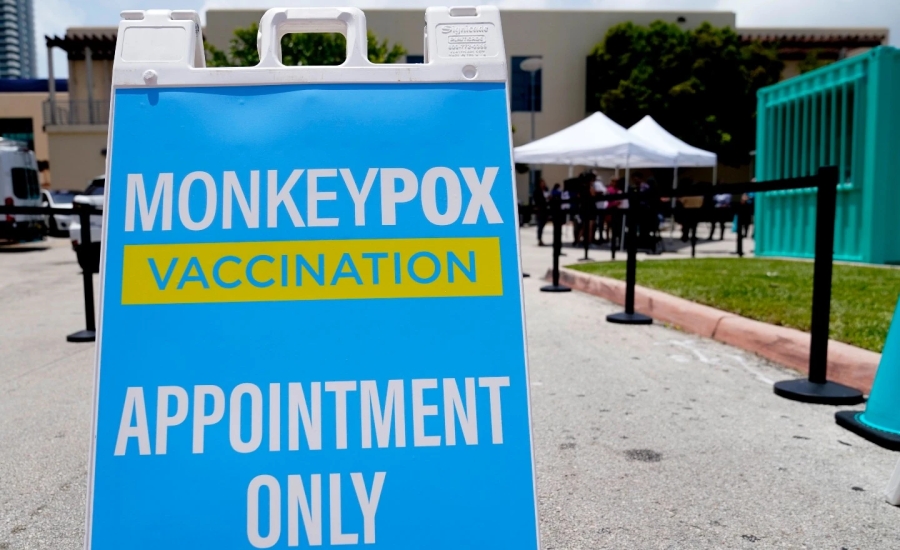Heads up, you only have one day left to cast your ballot in the 2022 Kids Mullet Championships. And there are a lot of impressive (and adorable) candidates this year.
Today in health care, the Biden administration announced steps to enhance the monkeypox response with more vaccine doses and targeted allocation of resources to jurisdictions.
Welcome to Overnight Health Care, where we’re following the latest moves on policy and news affecting your health. For The Hill, we’re Peter Sullivan, Nathaniel Weixel and Joseph Choi. Someone forward you this newsletter? Subscribe here.
Officials boost monkeypox vax effort with 1.8M doses
The Biden administration is planning to accelerate the delivery of its remaining supply of monkeypox vaccines and will make an additional 1.8 million doses available for ordering starting Monday, officials said Thursday.
Conditions: Jurisdictions will only be able to access the additional doses if they adopt the new intradermal administration of vaccine and have used 90 percent of their current supply of vaccine, officials said.
Another delivery of 150,000 Jynneos vials will arrive in September, after the White House sped up a shipment that was scheduled for October.
A targeted approach: The Department of Health and Human Services is also launching a pilot program to provide additional vaccine allocations to state and local health departments in jurisdictions that are hosting large events that attract members of the LGBTQ community.
- The pilot program will set aside up to 50,000 doses from the Strategic National Stockpile that communities can request, on top of their existing allocation. For example, the administration will send up to 2,000 additional doses to North Carolina this weekend for the Charlotte Pride Festival and Parade.
Officials also announced an effort to make the antiviral drug Tpoxx more widely available by “prepositioning” 50,000 courses to jurisdictions across the country.
- Starting next week, jurisdictions will be allocated courses of Tpoxx using a formula that takes into account both the number of cases in their jurisdiction and the number of individuals who have the highest risk of contracting the virus, including individuals who have HIV or other immunocompromised conditions.
Read more here.
US will make monkeypox vaccine to expedite delivery
An agreement between the Danish manufacturer of the only U.S. approved monkeypox vaccine and a Michigan-based company would move the final packaging steps to the U.S. in an effort to expedite the delivery of millions of doses.
Company and administration health officials on Thursday announced Denmark-based Bavarian Nordic entered into an agreement with U.S.-based contract manufacturer Grand River Aseptic Manufacturing.
The priority will be to fill and package 2.5 million vials of the Jynneos vaccine that were ordered by the Biden administration in July. Jynneos is the only monkeypox vaccine approved by the Food and Drug Administration.
Officials said in a statement that the technology transfer of the production process from Bavarian Nordic to Grand River has already been initiated, with the aim of completing it within three months.
- The process could normally take up to nine months, health officials said.
- “This partnership between Bavarian Nordic and GRAM will significantly increase the capacity to fill and finish government-owned doses – for the first time in the U.S. – and allow us to deliver our current and future supply more quickly to locations nationwide,” White House monkeypox response coordinator Bob Fenton said in a statement.
Read more here.
KENTUCKY SUPREME COURT DECLINES TO BLOCK ABORTION BAN
The Kentucky Supreme Court on Thursday declined to block the state’s near-total abortion ban while it reviews legal challenges to the law.
A state court of appeals allowed two abortion bans to go into effect in an Aug. 1 ruling and the state Supreme Court kept that ruling in place, finding that the “circumstances presented” by the challengers “do not rise to the level of extraordinary cause.”
The appeals court’s Aug. 1 decision lifted a temporary injunction against two
2019 bans. The near-complete ban on abortions was passed in the form of a “trigger” law, and took effect when the U.S. Supreme Court overturned Roe v. Wade.
Legal battle to come: The courts have yet to rule on the merits of the challenge to the abortion bans, and abortion rights groups said they will continue to fight.
- “Make no mistake: abortion bans result in tragic health outcomes and are a form of control over our bodies. Despite this setback, the fight continues,” Planned Parenthood Federation of America, the American Civil Liberties Union (ACLU) and the ACLU of Kentucky said in a statement.
- “We will proceed with our case to restore and protect reproductive freedom in Kentucky. Politicians and the government should never have the authority to force a person to remain pregnant against their will,” the groups said.
Ballot: But oral arguments aren’t scheduled until Nov. 15, which is after the general election. Voters will decide on a ballot measure asking if the state’s constitution should be amended to remove any abortion protections.
Read more here.
CDC INVESTIGATING ‘FAST-MOVING’ E. COLI OUTBREAK
Federal authorities are investigating a “fast-moving” E. coli outbreak that was identified in Ohio and Michigan, with nearly 30 people infected by the bacteria from an unknown source.
The Centers for Disease Control and Prevention (CDC) has so far identified
29 people who have become ill due to E. coli infections. Nine of those have been hospitalized due to their illnesses, while no deaths have been reported. The first infection occurred late in July.
The ages of those infected range from 6 to 91.
Tracking in progress: The CDC said it is utilizing the PulseNet system in its investigation. PulseNet compares the “DNA fingerprints” of bacteria from affected patients to identify clusters of disease. Whole genome sequencing that has been performed indicates that the bacteria collected so far from affected patients are closely related.
The true number of people who are affected is likely higher, the CDC acknowledged, and there may be more cases in other states.
- “Michigan and Ohio have both reported large increases in the number of E. coli infections in their states. Some of these illnesses have not yet been reported to the PulseNet system, but investigators are working quickly to add them to PulseNet to determine if they may be part of this outbreak,” the CDC said.
Read more here.
Updated boosters for adults, teens expected soon
White House coronavirus response coordinator Ashish Jha said Wednesday evening that updated COVID-19 vaccines are expected to be available in “a few short weeks” for everyone over the age of 12.
“The vaccines that are coming in a few short weeks are specifically designed for the virus that’s out there, and I believe it’s going to be available and every American over the age of 12 will be eligible,” Jha said on “NBC Nightly News.”
How many actually want it? There remains a question of how many people will get the updated shots, given that uptake for boosters so far has lagged. Only about half of people with the first two shots got the first booster dose, according to Centers for Disease Control and Prevention (CDC) data.
The Food and Drug Administration instructed vaccine makers to make these updated vaccines at the end of June, and it will have to officially sign off on the new shots before they become available.
‘Two shots is not enough’: The CDC has not officially changed the definition of “fully vaccinated” to include boosters, despite some experts’ calls, but Jha stressed on Wednesday that “two shots is not enough.”
“People need at least three,” he said. That is because the virus has evolved, and protection from the initial vaccines wanes over time.
Read more here.
WHAT WE’RE READING
- Biden administration has simple way to cut overdose deaths, experts say: expand methadone access (Stat)
- Upended: How medical debt changed their lives (Kaiser Health News)
- Before monkeypox outbreak, U.S. officials knew for years they didn’t have enough of key shot (Politico)
STATE BY STATE
- States with the toughest abortion laws have the weakest maternal supports, data shows (NPR)
- Nevada gov vows to codify order protecting patients into law (Associated Press)
- Wisconsin fentanyl deaths up 97%, state health officials say (FOX6 News Milwaukee)
OPEDS IN THE HILL
- Can bipartisan consensus yield action on youth mental health crisis?
- How a reorganized HHS can improve pandemic readiness
That’s it for today, thanks for reading. Check out The Hill’s Health Care page for the latest news and coverage. See you tomorrow.
VIEW FULL VERSION HERE


